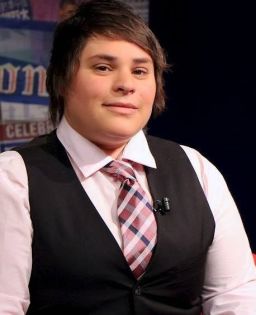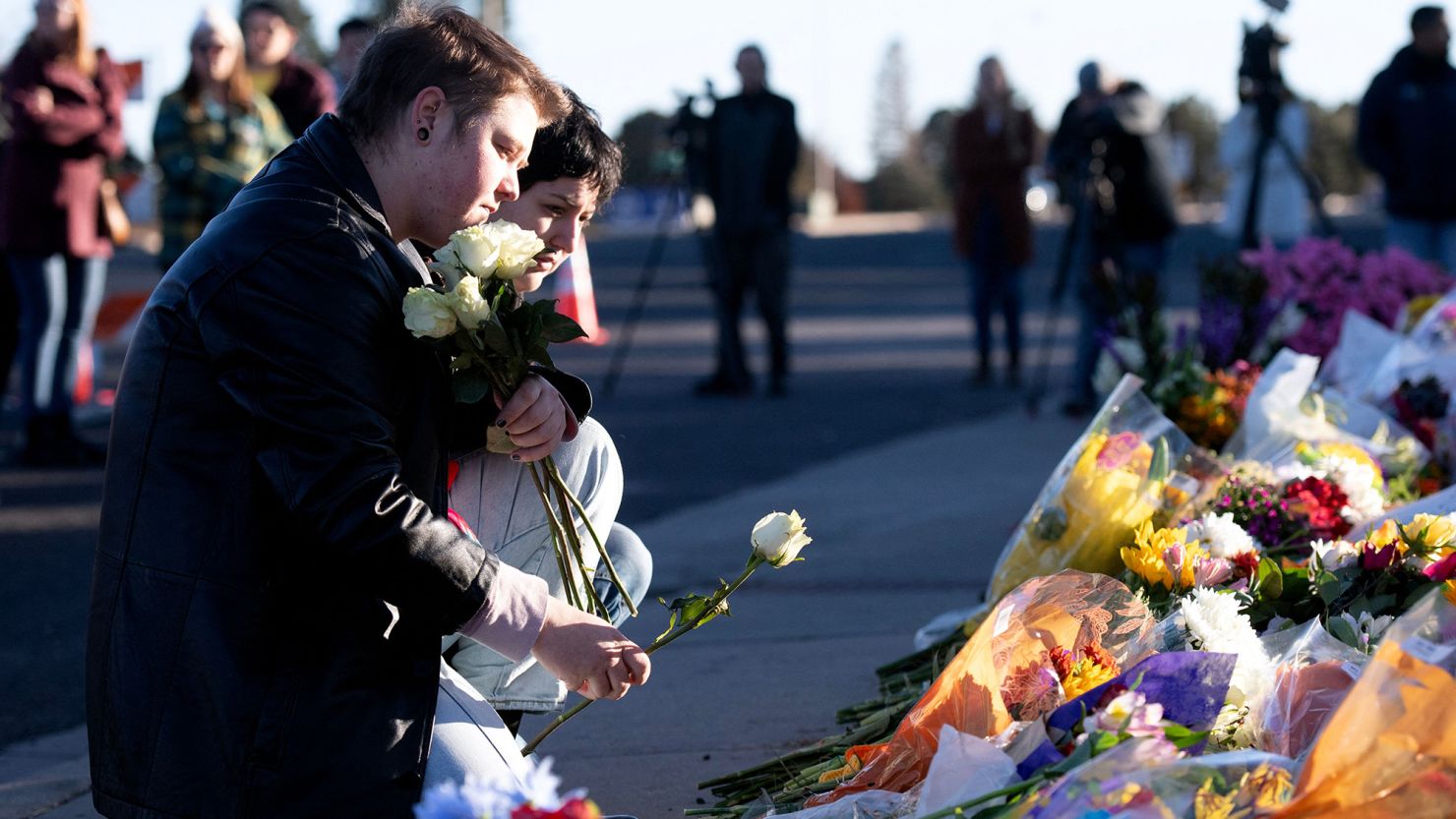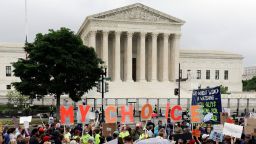Editor’s Note: Allison Hope is a writer whose work has been featured in The New Yorker, The New York Times, The Washington Post, CNN, Slate and elsewhere. The views expressed here are her own. Read more opinion on CNN.
There is a pit that sits in my gut. I always feel it. It’s a ball of anxiety that is proportionate to the sociopolitical environment and the perceived safety of my LGBTQ family at any given time.
Sometimes the pit grows so big I can think of nothing else.

This weekend was one of those moments. The cause was the mass killing and maiming of LGBTQ people at Club Q in Colorado Springs just before midnight on Saturday. A 22-year-old White male took the lives of five members of the LGBTQ family, physically injuring another 25 and emotionally scarring countless others.
That the mass shooting transpired just before Transgender Day of Remembrance, which is November 20, makes it even more heinous. The day is a time for peace and reflection, for honoring those whose lives were taken too soon and for helping to educate the broader population about the worthiness of trans people in order to avoid precisely the senseless violence that happened this weekend.
At least two of the five people killed on Saturday were trans: Daniel Aston, a 28-year-old bartender at Club Q, and Kelly Loving, 40. Both young, both gone.
Acts of violence like the one that took place in Colorado this weekend are sadly not an anomaly, but that doesn’t make them any less shocking. The LGBTQ community is still in mourning five years after the mass shooting at LGBTQ Pulse nightclub in Orlando that left 49 people dead.
What’s more, hate crimes are at a 13-year high, and one-in-five hate crimes target LGBTQ people, according to FBI data. One doesn’t need to look any further than the 2022 legislative season to see how LGBTQ people, and trans people in particular, were under attack from a more professional class of bullies, elected officials.
With news of every new anti-LGBTQ bill or hate crime, of every misinformed piece of rhetoric that aims to strip us of our rights, our history and our humanity, the pit moves up into my throat and at times it feels like it might suffocate me. Sometimes, in my most vulnerable moments, the pit rises high enough that it spills over and out of me in the form of tears.
I weep for the young LGBTQ people who will never make it to adulthood, for those who can’t see past the hate to a future where they might step into the light and into their true, fabulous selves. I weep for a country that continues to stand idly by and watch as the violence creeps ever closer to their homes, that allows homegrown terrorists to destroy our social fabric, our families, our children.
The question I ask myself over and over again, every time a cruel and senseless and violent act takes away more family members, is why? Why does someone feel such hatred for LGBTQ people that they would be willing to risk everything to harm other human beings? What are they afraid of? What are they taught in their homes? Hate is a learned behavior. Whether it’s perpetuated within the bounds of the law or outside of it, hate wears a different veneer, but it all leads to the marginalization, stigmatism and sometimes the death of fellow human beings.
In the LGBTQ community, we refer to one another as family. The term was born in part out of necessity because many of our own assigned and biological families rejected us.
It’s more than that, though. There is great comfort in being surrounded by people who love and accept you without conditions, who understand you without you having to explain. There is excitement in passing “family” as you’re walking down the street, particularly if you live or are traveling in a place where being LGBTQ is not safe. Family is everything, and LGBTQ family can be the difference between social isolation and wellbeing, between unhoused and cared for, between despair and hope.
Bars and clubs have long been family gathering places, the only refuge for LGBTQ people in a world that can be otherwise hostile. I remember taking the R train on the NYC subway from the very first stop in Queens to the very last in Brooklyn to a tiny lesbian dive bar. I was young and just coming into my own identity.
On the sidewalk outside of the bar, I was the “other,” a queer person who was still very much hiding who I was to most people in my life. I was frightened for my safety and wellbeing, and what others might sow on me should I reveal to them my true self. When I stepped across the threshold into that bar, however, I was immediately transformed into a self-assured and happy queer adult. That dingy little destination was so much more than a bar. It was a portal to a better world, a magical place where you weren’t the only one, where you didn’t have to watch your back and where you had automatic community, family.
The alleged shooter in Colorado Springs ripped that safety net away from that city’s LGBTQ community this Saturday, something that never would have happened if proper gun control laws had been invoked. Something that may not have happened if he were raised in a household that validated that it’s no big deal how someone identifies or who they love.
Get our free weekly newsletter
- Sign up for CNN Opinion’s newsletter.
- Join us on Twitter and Facebook
Seeing our fellow LGBTQ community members as family means we look out for one another when no one else will. Family means we feel connected to other LGBTQ people even if we haven’t met them. It means we mourn for those five people whose flames were snuffed out this weekend as if they were our brothers and sisters, because they were.
We don’t have any more room for thoughts and prayers. We need policy change. Now. We must leave no room for hate, violence or discrimination. Only then will the pit recede and something much more vibrant be allowed to grow in its place, hope.





